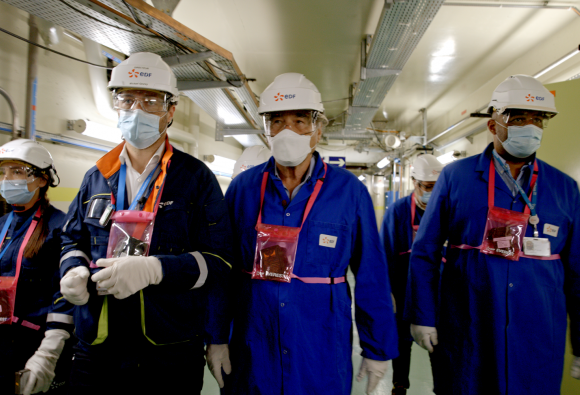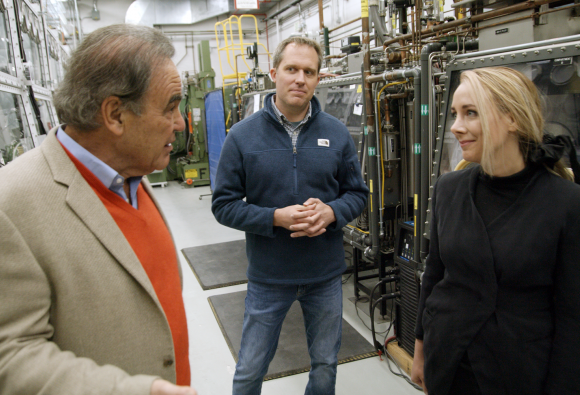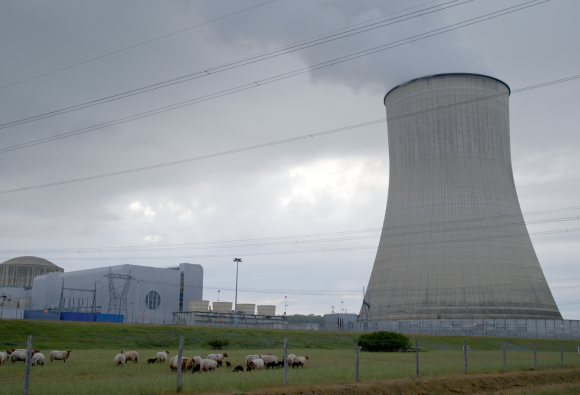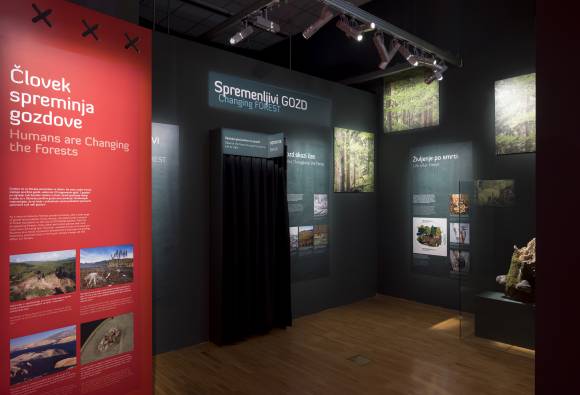
Screenplay: Joshua S. Goldstein, Oliver Stone
Directors of Photography: Lucas Fuica, Korkut Akir, Steven Wacks
Editing: Brian Berdan, Kurt Mattila
Music: Vangelis
On 5 October, a pre-screening round-table discussion, The Future of Nuclear Power in Slovenia, will be held in Kosovel Hall at 6pm. The admission to the round table is free.
As fossil fuels continue to cook the planet, the world is finally becoming forced to confront the influence of large oil companies and tactics that have enriched a small group of corporations and individuals for generations. Beneath our feet, Uranium atoms in the Earth’s crust hold incredibly concentrated energy- science unlocked this energy in the mid-20th century, first for bombs and then to power submarines and the United States led the effort to generate electricity from this new source. Yet in the mid-20th century, as societies began the transition to nuclear power and away from fossil fuels, a long-term PR campaign to scare the public began, funded in part by coal and oil interests. This campaign would sow fear about harmless low-level radiation and create confusion between nuclear weapons and nuclear power.
With unprecedented access to the nuclear industry in France, Russia, and the United States, director Oliver Stone explores the possibility for the global community to overcome challenges like climate change and reach a brighter future through the power of nuclear energy – an option that may become a vital way to ensure our survival sooner than we think.
Climate change has brutally forced us to take a new look at the ways in which we generate energy as a global community. Long regarded as dangerous in popular culture, nuclear power is in fact hundreds of times safer than fossil fuels and accidents are extremely rare. So, how can we lift billions of people from poverty while rapidly cutting greenhouse gases like carbon dioxide and methane—and, in many countries, coal? ‘Renewables’ like wind and solar power can certainly contribute to this transition but are limited by weather and geography. While miracle batteries are not arriving to save us, engineers have been commercialising new, smaller nuclear reactor designs that can be mass- manufactured at low cost. We must switch over—and fast. This is, in my mind, the greatest story of our time—discussing humanity’s arc from poverty to prosperity and its mastery of science to overcome the modern demand for more and more energy.
Oliver Stone
The screenings take place in cooperation with Kulturni dom Krško (the Krško Cultural Centre) and Jedrska.si, a digital platform dedicated to advocating nuclear power. The mission of the platform is to inform and bring together people who see nuclear power as a way to confront the escalating demand for energy and climate change challenges.
Nuclear Now
6,00 EUR
5,40 EUR * * EUR for younger than 25 and older than 65, as well as pensioners.




 34th Ljubljana International Film Festival - LIFFe
" width="580" height="395">
34th Ljubljana International Film Festival - LIFFe
" width="580" height="395">

